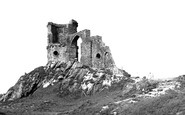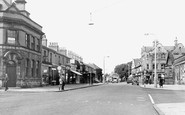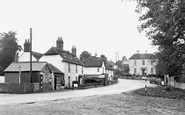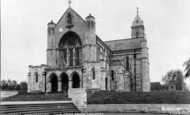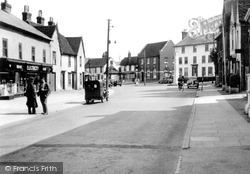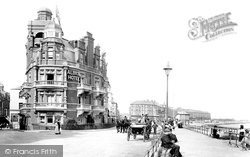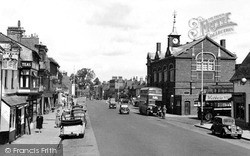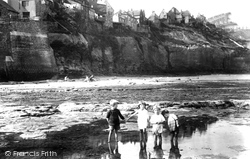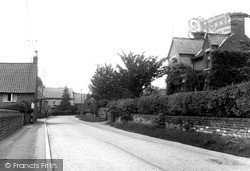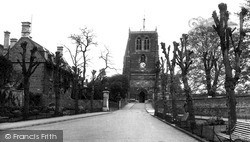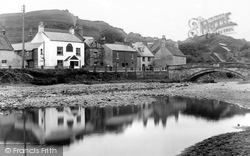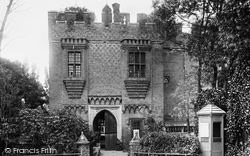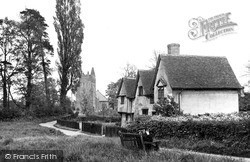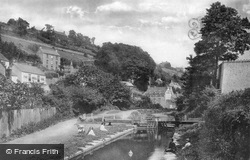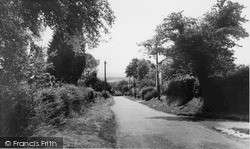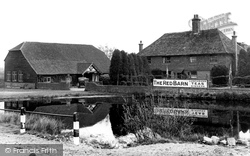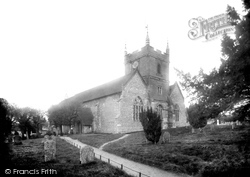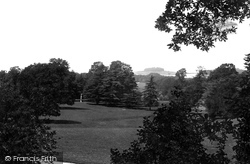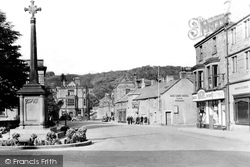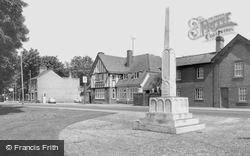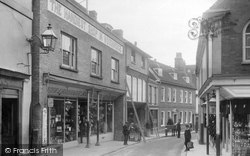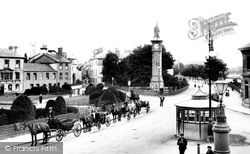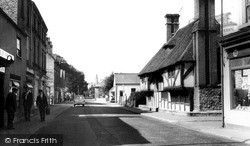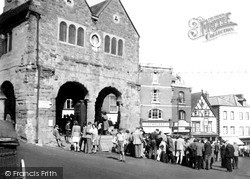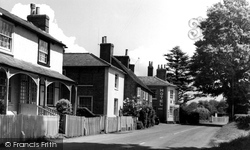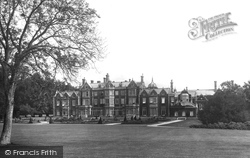Places
3 places found.
Those places high-lighted have photos. All locations may have maps, books and memories.
Photos
37 photos found. Showing results 81 to 37.
Maps
8 maps found.
Books
Sorry, no books were found that related to your search.
Memories
727 memories found. Showing results 41 to 50.
All Uphill
Our Dad used to take us for a walk up to Mow Cop Castle on a sunny Sunday. We would set off from Talke with our bottle of pop and a jam butty and walk along the canal for a while then through the lanes in Scholar Green past the Three ...Read more
A memory of Kidsgrove in 1973 by
Felin Bwlch, Pentregwenlais
My name is Alan Jones, I am from Llandybie having been born at 4 Angel Terrace. This tiny terraced house between the Ivy Bush and the Church was locally known as "Ty John Jew". My Grandfather ran the "Red Cow" for many ...Read more
A memory of Llandybie by
Family Of Ewj Moloney, Lancing Solicitor D 1978
I was part of the St James the Less Players, the Parish church drama group, which started my career on the boards. The Downs,The Manor, The Park, The Clump, The Chalkpit..The Woods The Beach..were ...Read more
A memory of Lancing by
Beanz Dreamz...
Our family moved to Friars Road in the summer of 66, from a damp house in Boothen Green, which looked over toward the Michelin Factory. I was 5 years old. My father Graham was a former art student at Burslem College of Art under the ...Read more
A memory of Abbey Hulton by
The Milton Road Coronation Party. 1953?
A large wooden hall was built on land behind Mr and Mrs Chrime's house in Milton Road and we had a street party for the Coronation of Queen Elizabeth II. I remember seeing bits of the ceremony on ...Read more
A memory of Ellesmere Port in 1953 by
Harriott Brothers The Butcher's Shop
My Father was Arthur Harriott who owned Harriott Brothers Butchers Shop (which can be seen at the bottom left-hand corner of the picture) together with his Brother, Edward. We lived in "Old Sarum" which is the ...Read more
A memory of Droxford in 1950 by
Little Boy's Heaven
In 1961 or 1962, as a small boy of 5 or 6 my mum, brought me to Hednesford to visit her grandmother, my great-grandmother, Emily Chetwyn. A diminutive lady, we, the children, called her little nana. I believe she lived in the ...Read more
A memory of Hednesford by
Infants School
Born and bred in Red Houses (then Red House Estate) at a time when everyone took time and effort to keep their home and gardens beautiful. Everyone knew everybody and it was a community that looked after each other. I remember ...Read more
A memory of High Etherley in 1957 by
Camberley...Where Do I Start ?!
Our family lived at Lightwater (1 High View Road) ; I passed 11 plus and was sent to Frimley And Camberley County Grammar School, starting in Sept. 1959. One of the first things we had to do was to get the uniform. We ...Read more
A memory of Camberley by
Coronation Day
My mother took short term housekeeping positions and in 1953 we lived in Westbrook House in Westbrook village, looking after Sir Edgar and Lady Ludlow Hewitt. He was a gentleman farmer and I sometimes drove around his land with him ...Read more
A memory of Bromham in 1953 by
Captions
240 captions found. Showing results 97 to 120.
Dunmow`s post office has been in the red brick building (centre) since 1939. A barn, used for meetings by local dissenters, once stood on the site.
Past the Georgian remains of Sea Houses, at the junction of Royal Parade with Seaside, is the flamboyant Albion Hotel, now renamed the Carlton Hotel, its red brick all colour- washed.
A No 82 bus stands outside the Victorian red brick Town Hall. Thame became a market town during the 13th century, and its importance as a commercial centre is still evident today.
One of the reasons why Robin Hood's Bay proved to be a popular haunt for artists is the picturesque cluster of red-roofed cottages perched somewhat precariously on the cliffs.
Many of the village houses are built of the local ironstone; this gives them a rusty red colour, the same as the houses in Denton.
Built around its fine market place, it found new life in the 19th century when it joined Northamptonshire's boot and shoe industry with several factories and terraces of hard red Midland brick houses.
Many of the village houses are built of the local ironstone; this gives them a rusty red colour, the same as the houses in Denton.
These old red-roofed houses on East Row are the first we reach if we are coming from Whitby.
Rye House 1904 These are the public gardens behind the gatehouse, with its modern glass conservatories and colourful flowerbeds lined with benches.
One of the reasons why Robin Hood's Bay proved to be a popular haunt for artists is the picturesque cluster of red-roofed cottages perched somewhat precariously on the cliffs.
The old house on the right has now been restored, but the seat on which the man rests is no more. Apart from these changes, this scene is little altered.
Of the two pubs shown here, The New Red Lion (centre) survives. The Bell Inn (left) is now a private house. The retaining wall on the right was part of Chalford Station yard.
The late Victorian Red Lion pub on the left is closed and for sale (January 2004), while the post office on the right is, as in many other villages, closed and now a house, Post Office House.
On Ray Lane, the road to Lingfield, at its junction with Tandridge Lane, stands The Red Barn; in the 1950s it offered luncheon, teas and dinners to travellers.
The red and white pinnacles of the tower, just visible in the picture, remind one of the tower of a Tudor house.
The view from Kingston Lacy House shows the wooded Badbury Rings on the horizon.
The Red Lion public house and the National Westminster Bank in the centre of the picture are still there, but Burgon's grocery store (right) is long gone.
The Red Lion Inn was built along with the spread of houses out from Cambridge in the 1930s. It faces the war memorial, erected in 1921-22 in memory of those who died in the First World War.
Further on is the 18th-century red brick Arnott House. Between them the first-floor windows are about to be cleaned. St Mary's rectory is on the right.
The building to the right is the red façade of The Athenaeum, built in 1888, which houses the museum and a collection of fossils.
Named for the mulberry tree that grew in the garden, this 18th-century Kentish hall house in the High Street was once at the centre of Snodland, where the market cross stood outside The Red Lion inn opposite
The Market Hall, built of red sandstone, dates from the mid 1600s and stands on the site of an earlier hall. The carving between the windows is of a bust of Charles II.
We are looking towards the Red Lion, an early 19th-century public house with attractive bay windows.
The house was built a decade later in the Tudor style, a cumbersome confection of stone and red brick.
Places (3)
Photos (37)
Memories (727)
Books (0)
Maps (8)

